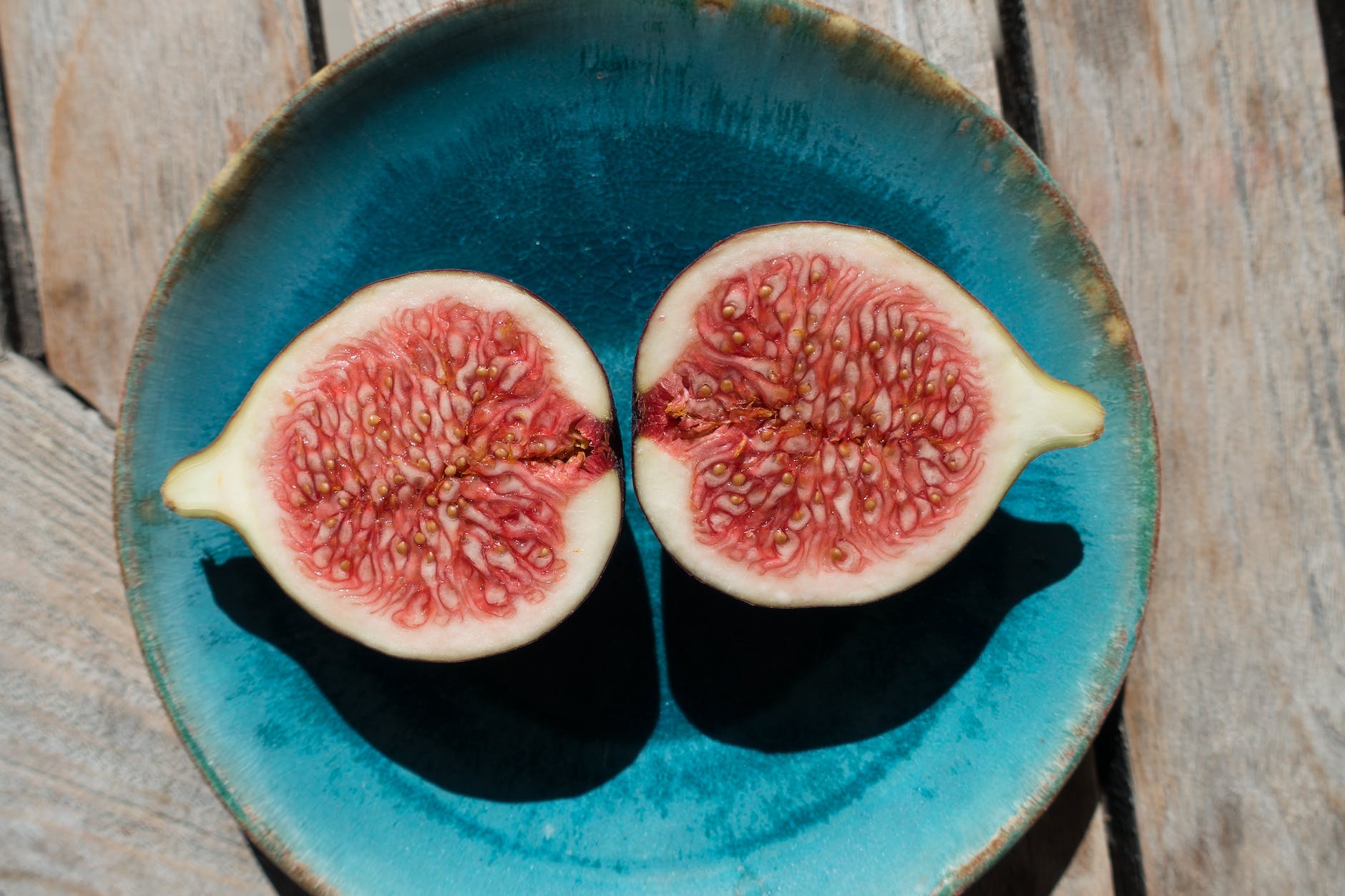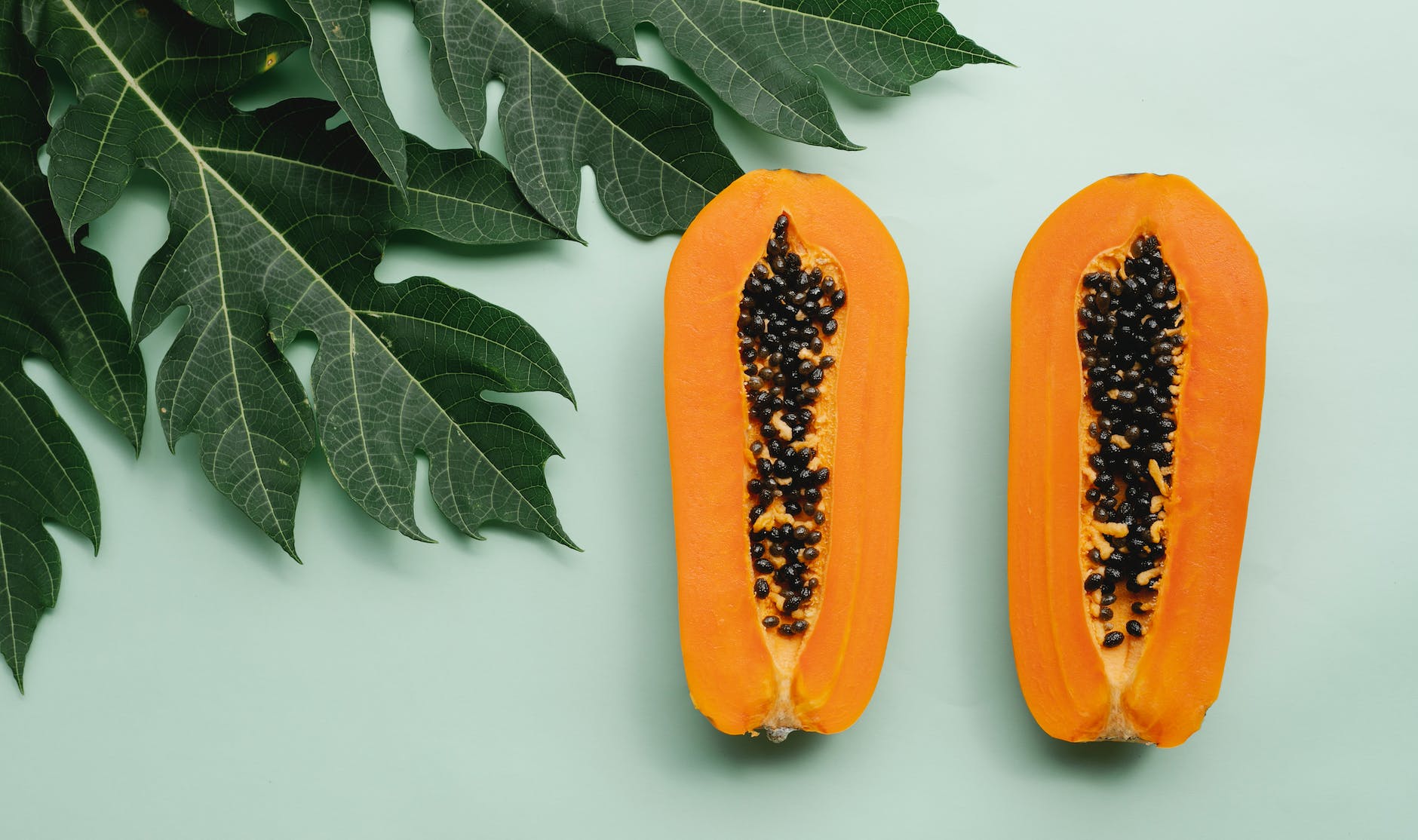
Figs, the sweet, chewy, and slightly crunchy fruit that’s been a favorite for centuries, are more than just a delightful treat. They’re a treasure trove of nutrients and offer a plethora of health benefits. In this comprehensive guide, we’ll delve deeper into the nutritional content of figs, their health benefits, and how they can contribute to a balanced diet and a healthier lifestyle. 🍽🌿
Fig Nutrition: What’s in a Fig? 🍈
Figs are a nutritional powerhouse. They are low in calories but high in fiber, making them an excellent choice for those watching their weight. A small raw fig, measuring about 1-1/2″ in diameter (40g), contains approximately 30 calories, 0.1g of fat, 0.4mg of sodium, 7.7g of carbohydrates, 1.2g of fiber, and 0.3g of protein. They also provide essential minerals like potassium and magnesium.
For those interested in the nutritional value per 100g, dried figs offer a different nutritional profile. They are higher in calories due to the concentrated sugars but also provide a higher amount of fiber and minerals.
The Health Benefits of Figs: A Fruit for Your Well-being 🌟
Weight Management 🏋️♀️
Figs can be a great addition to a weight loss diet. Their high fiber content can help you feel full, reducing the likelihood of overeating. They’re also low in calories, making them a guilt-free snack. So, if you’re wondering “does fig help in weight loss?” or “how to eat figs for weight loss?” the answer is a resounding yes!
Skin Health 💆♀️
Figs are rich in antioxidants, which can help fight the damaging effects of free radicals on the skin. Regular consumption of figs can contribute to healthy, glowing skin. So, if you’re looking for natural ways to enhance your skin health, figs could be your new best friend!
Digestive Health 🥗
The fiber in figs isn’t just good for weight loss; it’s also beneficial for your digestive system. It aids in healthy bowel movements and can help prevent constipation. So, if you’re looking for natural ways to improve your digestion, figs could be an excellent choice!
Bone Health 💪
Figs are a good source of calcium, a mineral that’s essential for bone health. A diet rich in calcium can help prevent osteoporosis and other bone-related health issues. So, if you’re looking for a fruit that’s beneficial for your bones, don’t overlook figs!
Heart Health ❤️
Figs are rich in potassium, a mineral that helps regulate blood pressure. A diet high in potassium can help lower high blood pressure, a major risk factor for heart disease. So, if you’re looking to keep your heart healthy, figs are a great choice!
Fig Diet: How to Incorporate Figs into Your Diet 🍽
Figs are versatile and can be incorporated into your diet in various ways. You can enjoy them fresh or dried, add them to salads or yogurt, or use them in baking. They can also be made into a delicious fig pickle, a popular delicacy in Indian cuisine.
How to Eat Figs for Weight Loss? 🍽🏋️♀️
Figs, with their natural sweetness and high fiber content, can be a delightful addition to a weight loss diet. They are low in calories and high in fiber, making them an excellent choice for those looking to shed some pounds. Here are five practical ways to incorporate figs into your diet for weight loss:
1. As a Healthy Snack: One of the easiest ways to incorporate figs into your diet is to consume them as a snack. Fresh figs are deliciously sweet and can help to curb your sugar cravings without adding too many calories to your diet. They are also quite filling, thanks to their high fiber content, which can help to prevent overeating. If fresh figs are not available, dried figs can be a good alternative. They are easy to carry and can be a quick and convenient snack when you are on the go. However, remember that dried figs are more calorie-dense than fresh ones, so be mindful of your portion sizes.
2. In Your Breakfast: Figs can be a great addition to your breakfast. You can chop fresh or dried figs and add them to your morning cereal or yogurt. They will not only add a burst of sweetness to your breakfast but also provide a good dose of fiber that can keep you feeling full and satisfied until lunchtime. This can help to prevent mid-morning snacking, which can be beneficial for weight loss.
3. In Salads: Another great way to enjoy figs is to add them to your salads. Fresh figs can add a unique sweet twist to your salads. Try adding fresh figs to a salad with mixed greens, goat cheese, and a light vinaigrette. The sweetness of the figs pairs well with the tanginess of the goat cheese and the acidity of the vinaigrette, creating a balanced and flavorful salad that is also low in calories.
4. In Smoothies: Figs can also be used in smoothies. You can blend figs with some low-fat yogurt and a handful of your favorite fruits to create a nutritious and filling smoothie. This can make a great breakfast option or a post-workout snack. The natural sweetness of figs can help to sweeten your smoothie without the need for added sugars, making it a healthier choice.
5. As a Dessert: If you have a sweet tooth, figs can be a healthier alternative to high-sugar desserts. Try baking figs with a drizzle of honey and a sprinkle of cinnamon for a delicious and healthy dessert. The figs become soft and even sweeter when baked, and the honey and cinnamon add a touch of indulgence without loading up on calories.
While figs can aid in weight loss, it’s important to remember that they should be consumed as part of a balanced diet. Eating a variety of foods will ensure that you get a wide range of nutrients necessary for good health. Also, maintaining a regular exercise routine is crucial for weight loss and overall health. As always, before making any significant changes to your diet, it’s best to consult with a healthcare professional or a registered dietitian. They can provide personalized advice based on your individual nutritional needs and health goals.
Are Fig Bars Good for Weight Loss? 🍫
Fig bars can be a healthy snack option, especially if they’re made with whole grains and real figs. However, it’s important to check the sugar content, as some fig bars can be high in added sugars.
🌟 Frequently Asked Questions (FAQs) 🌟
1. 🍽️ What are the nutritional benefits of figs?
Figs are packed with vitamins, minerals, and dietary fiber. They are rich in antioxidants, which help to fight off free radicals in the body. Figs are also a great source of calcium and potassium, which are essential for overall health.
2. 🏋️♀️ How can figs aid in weight loss?
Figs are high in fiber, which can help to keep you feeling full and satisfied, reducing the likelihood of overeating. They also have a low energy density, meaning they provide fewer calories than the same weight of other higher-calorie foods.
3. 🍇 What is the calorie content in fresh and dried figs?
Fresh figs are quite low in calories. One small fig typically contains just 30 calories. On the other hand, dried figs are more calorie-dense. One small dried fig can contain around 20-30 calories.
4. 🥗 How can figs be incorporated into a healthy diet for weight loss?
Figs can be enjoyed fresh or dried as a part of a balanced diet. They can be added to salads, yogurts, smoothies, or even used as a natural sweetener in baked goods.
5. 🍪 Can figs be used as a healthy snack for weight loss?
Absolutely! Figs are a great snack option for those trying to lose weight. They are satisfying, delicious, and can help curb sugar cravings due to their natural sweetness.
6. 🍳 How can figs be added to breakfast for a weight loss diet?
Figs can be a great addition to your breakfast. You can add them to your oatmeal, cereal, or yogurt. They can also be used in smoothies or eaten fresh on their own.
7. 🥙 What are some salad recipes that include figs for weight loss?
Figs can add a burst of sweetness to any salad. Try adding fresh figs to a salad with mixed greens, goat cheese, walnuts, and a balsamic vinaigrette for a delicious and healthy meal.
8. 🥤 Can figs be used in smoothies for weight loss?
Yes, figs can be a great addition to smoothies. They add a natural sweetness and a unique flavor, plus they blend well with many other fruits.
9. 🍨 How can figs be used as a dessert in a weight loss diet?
Figs can be used in a variety of desserts that can fit into a weight loss diet. For example, figs can be used to sweeten up a bowl of Greek yogurt, served with a sprinkle of cinnamon, or used in baking as a substitute for refined sugars.
10. 🍭 Are figs a good choice for those with a sweet tooth trying to lose weight?
Definitely! Figs are naturally sweet and can help to satisfy sugar cravings. They are a much healthier alternative to high-sugar, processed desserts.
11. 🌾 How does the fiber content in figs help with weight loss?
The high fiber content in figs helps to keep you feeling full, which can prevent overeating and snacking between meals. This can be particularly beneficial for weight loss.
12. 🍴 What are some practical ways to eat figs for weight loss?
Figs can be enjoyed in many ways. They can be eaten fresh, added to salads or smoothies, used in baking, or even enjoyed as a sweet treat with a drizzle of honey and a sprinkle of cinnamon.
13. 🍫 Are figs a good alternative to high-sugar desserts for those trying to lose weight?
Yes, figs can be a great alternative to high-sugar desserts. They are naturally sweet and can be used in a variety of ways to create delicious, healthy desserts.
14. 🍬 How does the natural sweetness of figs help in curbing sugar cravings?
The natural sweetness of figs can help to satisfy your sweet tooth without the need for added sugars. This can be particularly beneficial for those trying to cut down on their sugar intake for weight loss.
15. 🥦 Can figs be a part of a balanced diet for weight loss?
Absolutely! Figs are a nutritious and versatile fruit that can be a great addition to a balanced, weight loss diet.
16. 🏃♀️ What is the role of figs in a post-workout snack for weight loss?
Figs are a good source of carbohydrates, which can help to replenish glycogen stores after a workout. They also provide a quick source of energy and can aid in recovery.
17. 🍽️ How can figs help in preventing overeating?
The fiber in figs helps to keep you feeling full and satisfied, which can prevent overeating and help with weight loss.
18. 💆♀️ What are the health benefits of figs for skin?
Figs are rich in antioxidants, which can help to fight off free radicals that can damage the skin. They also contain vitamins A and C, which are beneficial for skin health.
19. 🥩 What is the protein content in figs?
Figs are not a significant source of protein, but they do contain small amounts. One large fig contains about 0.5 grams of protein.
20. 🍪 Are fig bars a good choice for weight loss?
Fig bars can be a good choice for a snack if they are made with whole, natural ingredients. However, it’s important to check the label for added sugars and other unhealthy ingredients.
21. 🍽️ How to use figs for weight loss?
Figs can be used in a variety of ways for weight loss. They can be added to salads, smoothies, and other dishes, or eaten on their own as a healthy snack.
22. 💪 What are the benefits of figs for males?
Figs are beneficial for everyone, including males. They are a good source of dietary fiber, which can aid in digestion and heart health. They also contain antioxidants and essential minerals like potassium and magnesium.
23. 🍵 What are the side effects of consuming dried figs?
While figs are generally safe to consume, eating too many can lead to diarrhea or other digestive issues due to their high fiber content. It’s also possible to have an allergic reaction to figs, although this is rare.
24. 🍊 Can figs help in digestion?
Yes, the fiber in figs can help to promote healthy digestion by adding bulk to the stool and promoting regular bowel movements.
25. 🍋 What is the vitamin C content in figs?
While figs are not a significant source of vitamin C, they do contain small amounts. One large fig contains about 2% of the daily recommended intake of vitamin C.
The Bottom Line 🏁
Figs are a nutritious fruit that offers a host of health benefits. Whether you’re looking to manage your weight, improve your skin health, boost your digestion, strengthen your bones, or keep your heart healthy, figs can be a great addition to your diet. Remember, though, that balance is key. Enjoy figs as part of a varied and balanced diet for optimal health.
Remember to consult with a healthcare professional before making any major changes to your diet or nutrition plan.
Disclaimer: This blog post is for informational purposes only and should not be used as a replacement for professional medical advice.
Tags: Fig Nutrition, Fig Health Benefits, Weight Loss, Skin Health, Digestive Health, Bone Health, Heart Health, Fig Diet, Healthy Eating, Wellness, Nutrition Tips, Healthy Lifestyle














